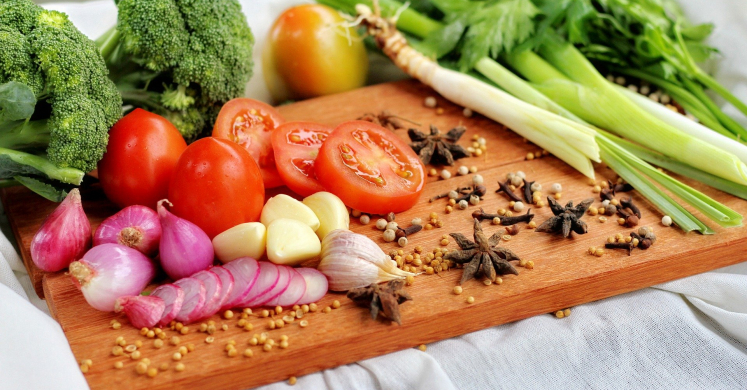Phipps Stories

Flexible Meal Planning Webinar
New restrictions, disrupted schedules, and limited grocery store trips has left us with narrowed options when it comes to getting dinner on the table. Learn about how to write flexible weekly meal plans with me in webinar below. Don't forget to check out the frequently asked questions for further meal prep tips!
Class Materials: Flexible Meal Planning PowerPoint, Meal Prep 101 Guide Vegetarian, Meal Prep 101 Guide Omnivore, Kids in the Kitchen Guide
FAQS:
How do I plan ahead to keep my produce from spoiling?
Great question! No one likes sticking their hand in the crisper drawer only to find some soggy leafy greens. I’m talking from experience! I have a three-step approach to this dilemma.
- Extend the shelf life of produce through proper storage. I’ve created a video that discusses how to keep your fruits, veggies, and herbs fresh based upon USDA recommendations. Some of these techniques may be surprising to you!
- Embrace canned and frozen food. Not all of your fruits and vegetables have to be fresh. In fact, frozen/canned F&V are generally just as rich in nutrients. Things to watch out for with canned items is added salt, sugar, and BPA lining. This link has more information on making smart choices when buying canned and frozen products.
- Prep your veggies and complement with different sauces, seasonings, and dips. A large barrier to making homemade meals is time. Vegetables can require a lot of prep work (chopping, roasting, peeling, oh my!). Prepping your vegetables ahead of time so that they are ready to go when meal time hits is a great way to set you up for success. We often eat what’s convenient, after all. This can look like roasting broccoli florets, cutting, washing, and de-stemming kale, baking sweet potatoes, and slicing cucumber. Put these items in separate Tupperware containers in the refrigerator to use as building blocks for your meals. A way to change up the flavors of your dishes with similar core ingredients is by creating different dips, sauces, and seasoning mixes. This website has some great dressing ideas.
How do I buy and cook for one person?
It can be discouraging and tiresome to eat the same recipe on repeat throughout the week. Instead of making a full-blown meal, make a point of having components of meals on hand that easily allow you to build something delicious. The 4-3-3-2 method that I briefly mentioned in class, is a good starting point when it comes to buying perishable items (change quantity depending on family size). The formula is as follows:
- 4 types of vegetables (such as a bag of leafy greens, a couple of sweet potatoes, a bundle of carrots, a head of a cruciferous vegetable)
- 3 types fruit (such as apples, strawberries, and bananas)
- 3 types of protein (such as fish, eggs, and tofu)
- 2 types of dairy/dairy alternative (such as Greek yogurt and soy milk)
Your formula ratio might look a little different, but following a system like this will set you up with the ingredients needed to make balanced meals for one. As for shelf stable items, check out my plant-forward pantry guide.
Here are additional kitchen tips for one:
Grains
- Cook a batch of whole grains and freeze in individual portions using a muffin tin. Once they are frozen, the discs can be stored in a reusable freezer bag.
- Have trouble finishing a loaf of bread? Freeze half the loaf to save for later!
- Visit the bulk section at your local grocery store. You can buy the amount you need for a smaller cost.
Veggies and Fruits
- Incorporate frozen produce in your meals, which can be just as nutritious as fresh! Choose options without added seasonings, sauces, salt or sugar. Frozen vegetables are pre-chopped making it.
- Since they're already chopped up, frozen fruits and veggies are ready to add to smoothies, soups and stir-fries, without the stress of spoilage.
- Bulk bags of fruits and veggies are only a better deal if you eat them before they spoil. However, if you struggle with completing the bag, just buy what you can reasonably eat. No need to buy the whole bunch of bananas if you can't finish them!
- Eat your produce in order of how perishable they are. Save berries and spinach for earlier in the week and eat heartier produce (cabbage, carrots, potatoes) for end of the week meals.
Protein: Tofu, Eggs, Beans
- Unopened blocks of tofu can be frozen and then thawed in the refrigerator when you're ready to cook with it. Frozen tofu has a spongier texture, which is better at soaking up flavors and sauces.
- Eggs can be hard-boiled ahead of time and eaten over the next few days for a quick and easy breakfast, snack or salad topping
- Cooked dried beans are super affordable, versatile and freeze well for later use.

